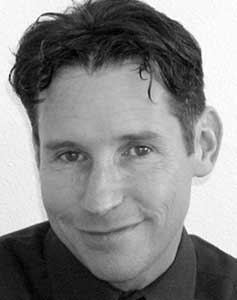-
- Golf club saga illustrates difficulty enforcing gay rights laws
- Gay bishop offers concession to conservatives over conference
- Despite state law, Massachusetts firms deny spousal benefits to same-sex couples
- The GLBT year in health
- Gay detective finds support instead of bias
- Same-sex marriage divorces begin
- National News Briefs
- World News Briefs
commentary
Human Rights Commission for San Diego
Published Thursday, 23-Dec-2004 in issue 887
BEYOND THE BRIEFS
Over the course of this column, I’ve tried to detail discriminatory practices against gays and lesbians within San Diego County. Here are just some of the practices I’ve noted:
• A medical facility refusing to provide services to a lesbian couple
• An adoption agency refusing to place a child with a gay couple
• A country club refusing to treat a non-married lesbian couple the same as non-married straight couples
• A newspaper refusing to print an ad for a gay business group
• A major weekly newspaper refusing to print personal ads for gays and lesbians seeking partners, while the daily paper allows people to describe themselves as straight but not gay
• A local radio station, licensed by a federal agency, using public airwaves, featuring personalities who refer to gays and lesbians in derogatory terms
I’ve also noted cases where dating services doing business in San Diego refuse to match gays and lesbians. I’ve tried to highlight some very explicit discriminatory practices to point out that bias against gays and lesbians exists. What’s also remarkable is that, despite the few cases where people have sued, these practices go unchallenged. I haven’t mentioned the hundreds of cases I’ve surveyed over the years where the bias isn’t as explicit, but discriminatory none the less.
I’m referring to the doctor(s) whose so called “bedside manner” changes abruptly when the gay or lesbian patient discloses his or her sexual orientation. The lawyer who doesn’t “do homosexual cases.” The apartment house that “has no problem with gay tenants,” just as long as they’re not “obvious.”
Almost 15 years ago, I was perturbed because San Diego was one of the only cities in the country that didn’t have a law protecting gays and lesbians from discrimination. So I drafted an ordinance that later would be called the Human Dignity Ordinance. This local law explicitly prohibits all the forms of bias I’ve described above.
Unfortunately, the then city attorney was not very fond of the law. He didn’t even want the authority under the law that would allow the city attorney to bring actions against those in violation of the law.
“Politicians can tell businesses not to worry about having to accept GLBT people because, after all, there’s really no way to enforce the laws the city passes.” Not surprisingly, in the almost 15 years since the ordinance was adopted, the city attorney has not brought, nor helped any person aggrieved under the statute.
The city of San Diego does have a Human Relations Commission, which is supposed to investigate claims of discrimination. But, quite naturally, the city council created a body whose powers are completely dependent upon both parties agreeing to cooperate with the commission. The commission has no power other than to issue reports about human relations within the city.
Some things need to change.
First, San Diego needs a city attorney who will investigate, mediate or prosecute violations of the HDO. It’s also time that San Diego moves into the 21st century and establishes a Human Rights Commission that has the power to investigate claims of bias, subpoena witnesses, adjudicate disputes, award damages and enter orders prohibiting discriminatory practices.
The Commission is necessary because there is no other mechanism to pursue civil claims against discriminatory practices by businesses in California.
The California Department of Fair Employment and Housing investigates job and housing bias. It really has no power to investigate claims involving unfair or illegal business practices, such as the ones I’ve outlined above. The Legislature must expand its jurisdiction.
There is also no federal agency that investigates bias claims based upon sexual orientation. Without a state agency to help, individuals are left to pursue relief on their own. Bringing a private lawsuit against a business is no small expense. There are only a handful of lawyers who specialize in anti-bias law. The damages in these cases are relatively small, so attorneys don’t have the incentive to take them on a contingency (percentage of recovery) basis. And the cases are expensive to litigate. The plaintiffs incur thousands in court costs.
If it costs thousands of dollars to fight a discriminatory practice, it’s no wonder they continue to go unabated.
All of a sudden, fighting to get a seat at the “whites-only” lunch counter or a seat at the front of the bus seems insignificant given the cost. That’s why the federal government has a civil rights division that enforces federal laws barring bias based upon race in public accommodations. San Diego needs an office that will do the same.
Passing the HDO and having a Human Relations Commission serve as nice window dressing for the city of San Diego. They stand as nice proclamations. Politicians can tell businesses not to worry about having to accept GLBT people because, after all, there’s really no way to enforce the laws the city passes. And, as we saw with preferential land lease given to the Boy Scouts, even the city itself ignored the law.
|
|
Copyright © 2003-2025 Uptown Publications


